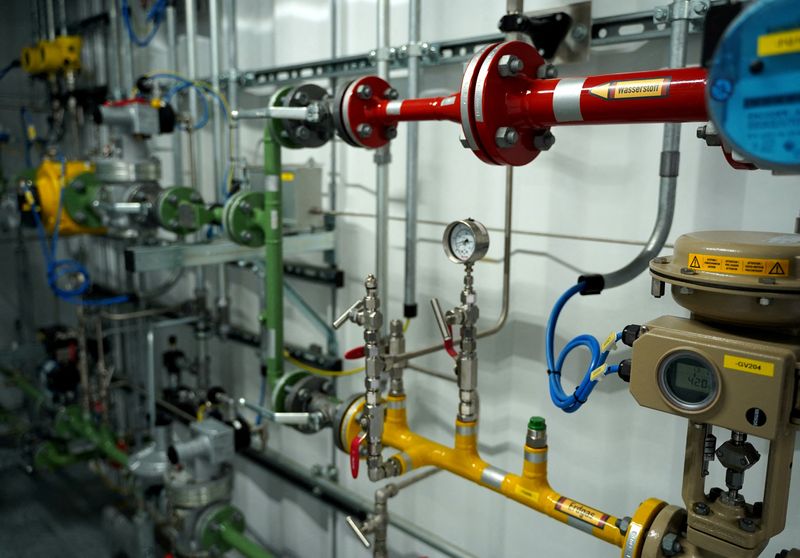By Sergio Goncalves
LISBON (Reuters) - Portugal's REN has started adapting its high-pressure natural gas grid to allow it to carry an up to 10% share of green hydrogen as early this year, the company said on Thursday.
Portugal's government plans to hold its first auction in the second half of this year for the rights to sell green hydrogen, which is produced using renewable energy, for injection into national gas grids.
Some analysts say the sale could kickstart Europe's fledgling market for hydrogen, as European countries turn to it to tackle carbon emissions and improve energy security.
While the auction aims to boost investment in green hydrogen, REN - the only operator that transports high-pressure natural gas and operates the interconnections with Spain - has to adapt its 1,375-kilometer (854-mile) grid across mainland Portugal so it can cope with a mixture of natural gas and hydrogen.
REN said it has started to adapt instruments to measure the quality of the transported and they should be ready "by the end of the year".
"This work is crucial for REN to obtain, still in 2023, the (official) certification for, in this first phase, receiving and transporting up to a maximum of 10% of green hydrogen on its grid," it said in a statement.
REN said its strategy for renewable gases, in line with European Union policies, is based on "adapting existing infrastructures to accommodate these gases and the development of infrastructures for 100% hydrogen".
Portugal expects to become a major producer and exporter of green hydrogen. Energy Secretary Ana Fontoura said in May that Portugal "already has firm investment intentions to install green hydrogen plants with double or even triple the 2.5 GW of capacity that the government forecast by 2030".

Oil and gas company Galp plans to build a green hydrogen unit in the industrial hub of Sines and is working on another plant with EDP-Energias de Portugal.
The three main glass producers and two biggest cement makers, together accounting for 10% of the country's industrial carbon emissions, also joined a consortium to launch a green hydrogen unit.